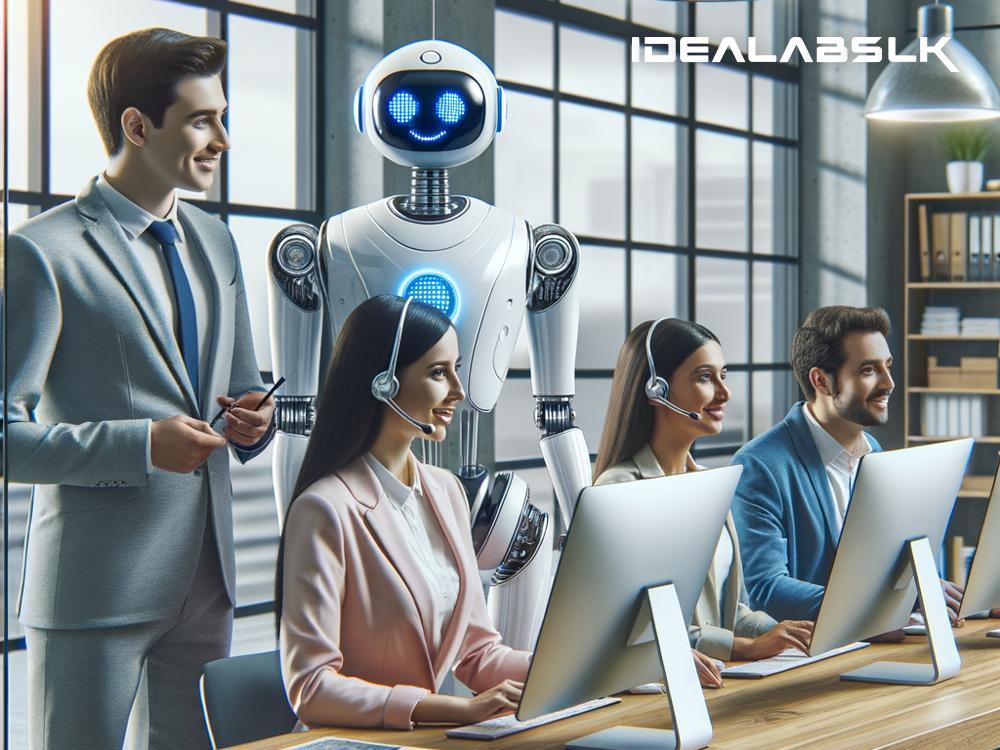Exploring the Use of AI in Automated Customer Service
In recent years, we've seen a revolution in how businesses interact with their customers. This change is largely driven by advancements in technology, notably, Artificial Intelligence (AI). AI is like a smart machine that can think, learn, and even make decisions somewhat like a human being. Today, we're diving into how AI is reshaping customer service, making it more automated but, surprisingly, also more human-like.
The Rise of Automated Customer Service
Gone are the days when the only way to resolve a customer service issue was through long waits on the phone, listening to elevator music before talking to a human. Automated customer service, powered by AI, has swooped in to change the game. This shift means you're more likely to chat with an AI-powered bot than a human for your common questions and issues.
How does AI fit into Customer Service?
-
Chatbots: You've probably encountered these on various websites - little chat windows that pop up, offering help. These chatbots use AI to understand your questions and provide you with answers or direct you where you need to go. They learn from every interaction and get better over time at predicting and solving customer issues.
-
Virtual Assistants: Think of Siri or Alexa, but for customer service. These AI-driven assistants can handle a range of tasks, from answering FAQs to helping you navigate a company's app or website. They can even escalate issues to human agents if they can't resolve them themselves.
-
Personalization at Scale: Ever noticed how some online platforms seem to know exactly what you’re interested in? AI analyzes your behavior and preferences to provide personalized recommendations and support, making your experience smoother and more enjoyable.
Benefits of Automated Customer Service
-
24/7 Availability: AI doesn't sleep. This means you can get the help you need at any time of the day, without having to wait for business hours.
-
Speedy Responses: AI can process and respond to requests much faster than a human, reducing wait times and increasing customer satisfaction.
-
Consistency: Human agents might have bad days, but AI will consistently provide the standard level of service, ensuring a reliable experience for customers.
-
Scalability: AI can handle a vast number of queries at once, making it easier for businesses to manage large volumes of customer interactions without compromising on quality.
Challenges of AI in Customer Service
While the benefits are clear, AI in customer service isn't without its challenges. The biggest concern is the loss of the human touch. AI can come across as impersonal, and it might not always understand or appropriately react to the nuances of human emotions. This gap is where human agents step in, providing empathy and understanding that AI currently can't.
Moreover, there's the issue of privacy and data security. AI systems need access to vast amounts of data to learn and make decisions. This raises concerns about how that data is used and protected. Businesses need to be transparent about their data practices and ensure they're safeguarding customer information.
The Future of AI in Customer Service
Looking ahead, we can expect AI in customer service to become even more sophisticated. Advances in Natural Language Processing (NLP) will enable AI to better understand and respond to customer queries in a way that feels more natural and human-like. We're also likely to see AI become more proactive, predicting and solving customer issues before they even arise.
However, the future isn't about replacing humans with machines. Instead, it's about finding the right balance. AI can handle routine tasks and queries, freeing up human agents to deal with more complex issues that require a personal touch. This blend of AI efficiency and human empathy could define the next era of customer service.
Conclusion
The integration of AI into customer service is transforming the way businesses interact with their customers. With benefits like 24/7 availability, speedy responses, and personalized experiences, it's no wonder many companies are adopting this technology. However, the value of human interaction remains irreplaceable. The goal, then, is not to remove humans from customer service but to enhance their capabilities and efficiency with AI. As we move forward, finding the perfect harmony between automated efficiency and human warmth will be key to delivering exceptional customer service experiences.

